Nubian goat weight by age – Delving into the fascinating world of Nubian goats, this guide explores the intricate relationship between their weight and age, providing a comprehensive overview of their growth, weight management, and nutritional needs.
As Nubian goats embark on their journey from birth to maturity, their weight undergoes significant transformations, influenced by a myriad of factors. Genetics, nutrition, and environmental conditions play pivotal roles in shaping their growth patterns, making it essential to understand the average weight ranges at different stages of their lives.
Growth and Development of Nubian Goats
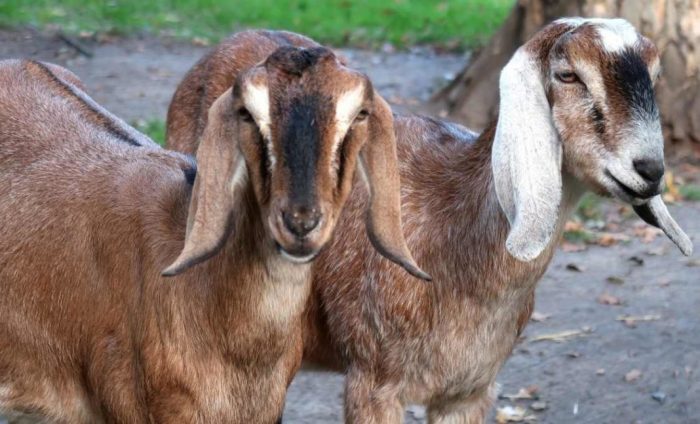
Nubian goats are known for their rapid growth and development. They reach sexual maturity at around 8-12 months of age and can live for up to 10-12 years.
Nubian goats are known for their impressive size, with their weight varying based on age. The pca book of church order doesn’t mention anything about Nubian goats, but it does provide guidance on matters of faith and church governance. Returning to the topic of Nubian goats, they typically reach their maximum weight between the ages of 3 and 5 years.
The growth rate of Nubian goats is influenced by several factors, including genetics, nutrition, and environmental conditions.
Genetics
The genetics of a Nubian goat play a significant role in its growth rate. Goats with good genetics will typically grow faster and reach a larger size than those with poor genetics.
Nutrition
The nutrition of a Nubian goat is also essential for its growth and development. Goats that are fed a diet that is high in protein and energy will grow faster than those that are fed a diet that is low in these nutrients.
Environmental Conditions
The environmental conditions in which a Nubian goat is raised can also affect its growth rate. Goats that are raised in warm, dry climates will typically grow faster than those that are raised in cold, wet climates.
Average Weight Ranges for Nubian Goats at Different Ages
| Age | Average Weight Range (lbs) |
|---|---|
| Birth | 6-8 |
| 1 month | 15-20 |
| 2 months | 25-30 |
| 3 months | 35-40 |
| 6 months | 50-60 |
| 9 months | 70-80 |
| 12 months | 90-100 |
Weight Management in Nubian Goats
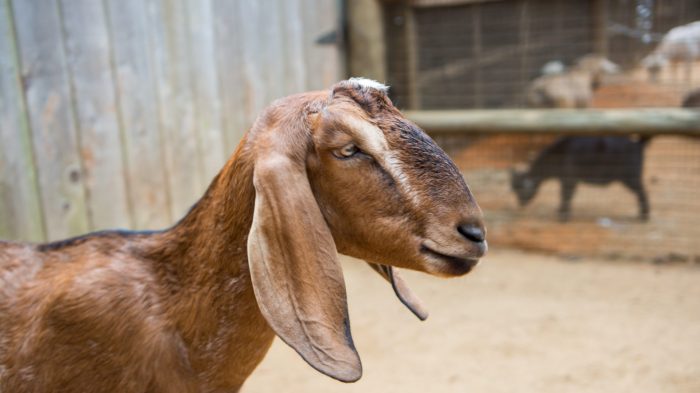
Maintaining a healthy weight is crucial for Nubian goats’ overall well-being and productivity. Proper weight management ensures optimal growth, reproduction, and milk production while minimizing the risk of health issues.
- Diet:Nubian goats are primarily browsers, consuming a variety of vegetation. A balanced diet includes high-quality hay, fresh pasture, and supplements as needed. Monitoring feed intake and adjusting rations based on age, weight, and production stage is essential.
- Exercise:Regular exercise helps maintain a healthy weight and promotes overall goat health. Providing ample space for grazing, exercise, and socialization is important. Access to a safe pasture or paddock allows goats to move freely and burn calories.
- Supplementation:In some cases, supplementation may be necessary to ensure proper weight gain or maintain a healthy weight. Supplements may include energy-dense feeds, protein supplements, or minerals and vitamins.
Potential Health Issues
Underweight Goats:Underweight Nubian goats may experience reduced growth, delayed maturity, decreased milk production, and increased susceptibility to diseases. Causes include inadequate nutrition, parasitic infections, or underlying health conditions. Overweight Goats:Obesity in Nubian goats can lead to joint problems, lameness, metabolic disorders, and reduced reproductive performance.
Excessive weight gain is often a result of overfeeding, lack of exercise, or hormonal imbalances.Regular monitoring of Nubian goats’ weight and body condition scoring is crucial for timely detection and management of weight-related issues, ensuring their optimal health and productivity.
Breed Standards and Weight Expectations
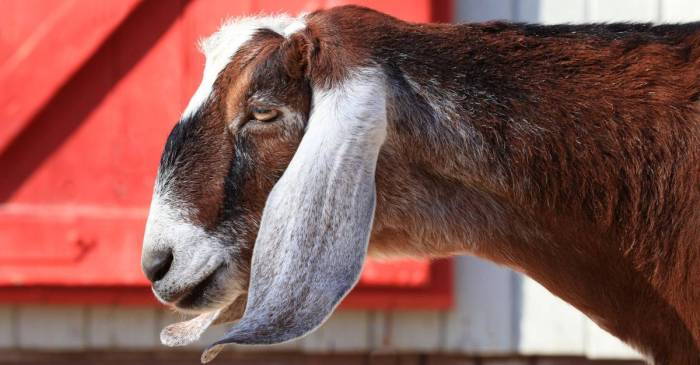
The Nubian goat is a popular breed known for its distinctive appearance and milk production capabilities. Like other goat breeds, Nubians have specific breed standards that include weight expectations at different ages. These standards serve as guidelines for breeders and help maintain the breed’s characteristics.
Weight Expectations
Nubian goats are typically larger than other goat breeds, with bucks weighing more than does. At birth, Nubian kids weigh around 7-9 pounds (3-4 kg). By the age of 6 months, they should weigh around 60-70 pounds (27-32 kg). Adult Nubian bucks typically weigh between 175-220 pounds (80-100 kg), while adult does weigh between 120-160 pounds (54-73 kg).
Comparison to Other Breeds
Compared to other goat breeds, Nubians are considered a medium to large-sized breed. Boer goats, known for their meat production, are typically heavier than Nubians, with bucks weighing up to 300 pounds (136 kg) and does weighing up to 200 pounds (91 kg).
On the other hand, smaller goat breeds like Nigerian Dwarf goats weigh significantly less, with bucks weighing around 25 pounds (11 kg) and does weighing around 18 pounds (8 kg).
Implications of Abweichung from Standards
Abweichung from breed standards for weight can have implications for Nubian goats. Goats that are significantly overweight may face health issues such as obesity, joint problems, and reproductive difficulties. Underweight goats, on the other hand, may have reduced milk production, compromised immune systems, and difficulty conceiving.
Therefore, it is important for breeders to monitor the weight of their Nubian goats and ensure that they are within the recommended ranges. Proper nutrition, exercise, and veterinary care are essential for maintaining healthy weights and overall well-being in Nubian goats.
Nutritional Requirements for Optimal Growth: Nubian Goat Weight By Age
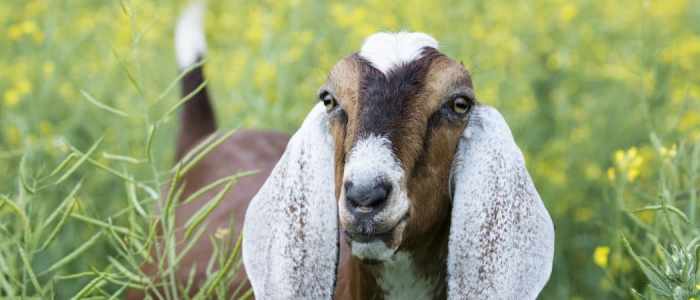
Ensuring proper nutrition is crucial for the optimal growth and development of Nubian goats. Their nutritional needs vary depending on their age, weight, and activity level. Understanding these requirements and providing a balanced diet is essential for maintaining healthy and productive goats.
Nutrient Composition and Feed Intake
The recommended daily feed intake and nutrient composition for Nubian goats at different ages are as follows:
| Age | Dry Matter Intake (% of body weight) | Crude Protein (%) | Crude Fiber (%) | Total Digestible Nutrients (%) |
|---|---|---|---|---|
| 0-3 months | 3-4% | 18-20% | 12-15% | 70-75% |
| 3-6 months | 2.5-3% | 16-18% | 10-12% | 65-70% |
| 6-12 months | 2-2.5% | 14-16% | 8-10% | 60-65% |
| Over 12 months | 1.5-2% | 12-14% | 6-8% | 55-60% |
Importance of a Balanced Diet
Providing a balanced diet that meets the specific nutritional needs of Nubian goats is essential for their overall health and well-being. A diet deficient in any essential nutrient can lead to health problems, reduced growth rates, and impaired reproductive performance.
Conversely, a diet that is too rich in certain nutrients can also be detrimental, causing obesity, metabolic disorders, and other health issues.
Impact of Weight on Reproduction and Milk Production
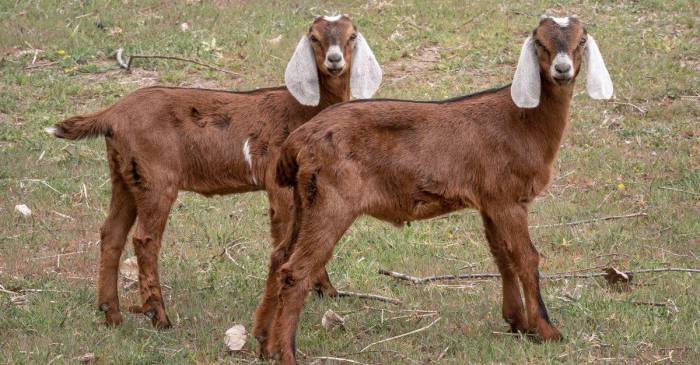
Weight plays a crucial role in the reproductive performance and milk production of Nubian goats. Maintaining an optimal weight is essential for their overall health, productivity, and profitability.
Relationship between Weight and Reproductive Performance, Nubian goat weight by age
Proper weight is crucial for successful reproduction in Nubian goats. Underweight goats may have difficulty conceiving due to hormonal imbalances and reduced energy reserves. Overweight goats, on the other hand, may experience reproductive issues such as reduced fertility, delayed puberty, and increased incidence of pregnancy complications.
Impact on Milk Production and Quality
Weight management directly impacts milk production and quality. Underweight goats may produce less milk due to insufficient energy reserves. Overweight goats, while they may produce more milk initially, may experience a decline in milk quality over time. Excessive body fat can alter the composition of milk, leading to lower protein and fat content.
Examples of Weight Management for Improved Reproductive and Milking Efficiency
Effective weight management strategies can significantly improve reproductive and milking efficiency in Nubian goats. For instance, providing adequate nutrition and exercise to underweight goats can help them gain weight and enhance their reproductive performance. Conversely, reducing calorie intake and increasing physical activity for overweight goats can help them lose weight and improve their milk production and quality.
Frequently Asked Questions
What is the average weight of a Nubian goat at 6 months?
Around 60-80 pounds
How much weight should a Nubian goat gain per day?
Approximately 0.5-1 pound per day during the first 6 months
What are the signs of an overweight Nubian goat?
Difficulty moving, excessive fat deposits, and decreased milk production